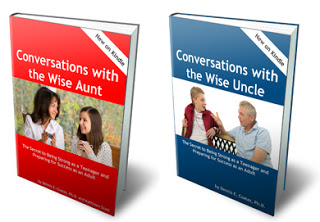Showing posts with label Character Development. Show all posts
Showing posts with label Character Development. Show all posts
Monday, March 3, 2014
Coach Frank Hall: A Man of True Character
An unforgettable episode aired recently on the CBS show, 60 minutes. Without question, it’s my favorite one to date, highlighting a man whose life will inspire you to be a better person.
Coach Frank Hall was on duty in the Chardon High School cafeteria on the morning of February 27, 2012, when a 17 year-old student walked in and fired 10 rounds into the crowd of students. Six students went down, and Coach Hall immediately chased the student even as the gunman fired his weapon at the coach. The student ran out the building and was caught shortly afterwards by police in the woods. The coach returned to the cafeteria to comfort the injured students as best he could until the medics arrived. Three students had injuries so severe, they did not survive.
No doubt, the coach's actions saved many other lives that day.
Many viewers, as I did, probably thought this story would move into a political statement about stronger gun control laws or a study of why our schools are less safe today.
But that’s not the direction it took.
Instead, we were given a very special gift: the picture of a man whose very being is a finely tuned work of character.
Coach Hall had prepared for this day by the way he lived every minute of his life. He and his wife have four adopted sons, and they're raising these children in a loving environment with clearly stated boundaries, expectations and values.
He was the beloved assistant coach of the football team, inspiring his players daily to give their best effort.
But the memories of that day haunted him. And then he decided to leave that school to become the head coach of a nearby school where the kids “needed him more.”
The turn-around in the lives of those football players was dramatic. One incident in particular illustrates the ripple effect Coach Hall’s leadership had on each player on that team.
One of the football players had “smarted off” to a teacher in the school. Coach Hall required every player on the team to apologize to that teacher, not just the offending player. Two of the players talked about this on-camera and you could tell that they agreed with the coach’s mandate. All the players developed a sense of accountability – individually and for each other. The entire dynamic changed, and they went on to win all but one of their games that season.
Invest 13 minutes to watch this segment (13:26). You’ll discover the power of one human being to touch the lives of others in a profound, lasting way.
Tuesday, September 18, 2012
Personal Strengths Are Behavior Patterns, Not Passive Qualities
When it comes to character development, people often use words like “quality” or “trait” to describe personal strengths like honesty, integrity, courage and perseverance. But these terms miss the mark.
The reason: The only way others can really tell if you’re honest or courageous when you face a challenge is by observing your behavior.
What do you actually DO when you’re in a situation that requires you to tell the truth or take a calculated risk? It’s not about what you say you value, it’s how you act in the moment.
Reading books to get inspired will only take you so far. And it’s not enough to think of yourself as a person who values decisiveness, compassion, and initiative. The real test is: Do you consistently make decisions in a timely manner, treat others kindly and take appropriate action without being asked to?
Many character education programs in schools these days fall far short of helping students actually become people of character. They may teach the importance of fairness, excellence, commitment and personal responsibility. But they don’t give kids the opportunity to actually develop these behavior patterns.
You build physical strength by repeatedly exercising certain muscles. Whether you’re working with a trainer at the gym or going through work-out DVDs at home, practice and repetition are keys to getting in shape.
In a similar way, you develop a personal strength by repeating a behavior pattern until it becomes comfortable. You’re actually wiring a circuit in your brain that enables you to do it automatically.
Here’s why that kind of repetition is so important.
When you face a difficult situation, you don’t always have time to think through how you’ll respond. That means you often react with a pattern you’ve ingrained over time. So what kinds of patterns have you established?
Let’s say someone asks you if you got a specific task or project done. If you didn’t, will you admit the truth or try to cover up to save face? If you’ve developed a pattern of being honest most of the time, you’ll be more likely to tell the truth in this situation.
Or you’re upset because another person didn’t follow through with something they promised to do. Do you keep your cool and maintain your composure, or do you fly off the handle and react emotionally?
So what behavior patterns related to personal strengths have you established? Have you created habits that make it easy for you to do the hard things in your work and personal life?
Until now there hasn’t been a system for helping people build these core personal strengths. Our ProStar Coach program provides the content and the structure to help you develop 40 different strengths. If you’re committed to being a lifelong learner, you owe it to yourself to check it out.
Tuesday, April 10, 2012
Parents of Tweens and Teens – Books to Guide Your Child’s Development
I remember all too well the unexpected transformation that happened when my daughter Alison entered the pre-teen years. The sweet, lovable little girl we’d had for 11 years suddenly seemed possessed by a stranger with a sassy mouth and disrespectful attitude.
Those were some trying times, and my husband and I did the best we could to balance patience with appropriate boundaries and consequences. We weren’t always successful but Alison transitioned from the teen years to adulthood relatively unscathed, and we’re very proud of her today.
Still, it would have been so valuable to have the book, Conversations with the Wise Aunt, to guide us during that time.
My business partner of 20+ years, Denny Coates, has written this book for parents of tween/teen girls and Conversations with the Wise Uncle, for parents of pre-teen/teen boys. These are extraordinary books for any adult who works with young people.
Denny’s had a passion for studying the brain and learning for almost 30 years. The depth of his knowledge continues to amaze me. He is now focusing his writing on the teen brain because he discovered the critical development that happens in the brain between the ages of 12 and 22—and most people don’t have this information. His new website, How to Raise a Teenager, is dedicated to educating parents about these changes.
The two “Wise” books are fictional accounts of conversations that take place over time. The Wise Uncle book tells the story of Chris and his Uncle Ray, who mentors him during his teen years. In the Wise Aunt, Trisha has a similar relationship with her aunt, Maria. Many of the issues covered are things most parents aren’t prepared to talk about.
It’s like a window of opportunity to develop the foundation for understanding cause and effect, foreseeing future consequences, making rational decisions and managing emotions.
The wise uncle and the wise aunt emphasize character development, using stories about sports and volunteering in the community to coach the teen about building inner strength and positive lifelong habits.
I highly recommend that you get the Wise Aunt or Wise Uncle book and read it yourself first. The dialogues in the books can give you ideas for heart-to-heart talks with your child. Then give it to your child. The stories will give them insights most young people never get—the kind that can give them an edge as they grow up and prepare for a happy, successful life as an adult. And in the world in which kids live today, they need all the advantages they can get.
Subscribe to: Posts (Atom)







